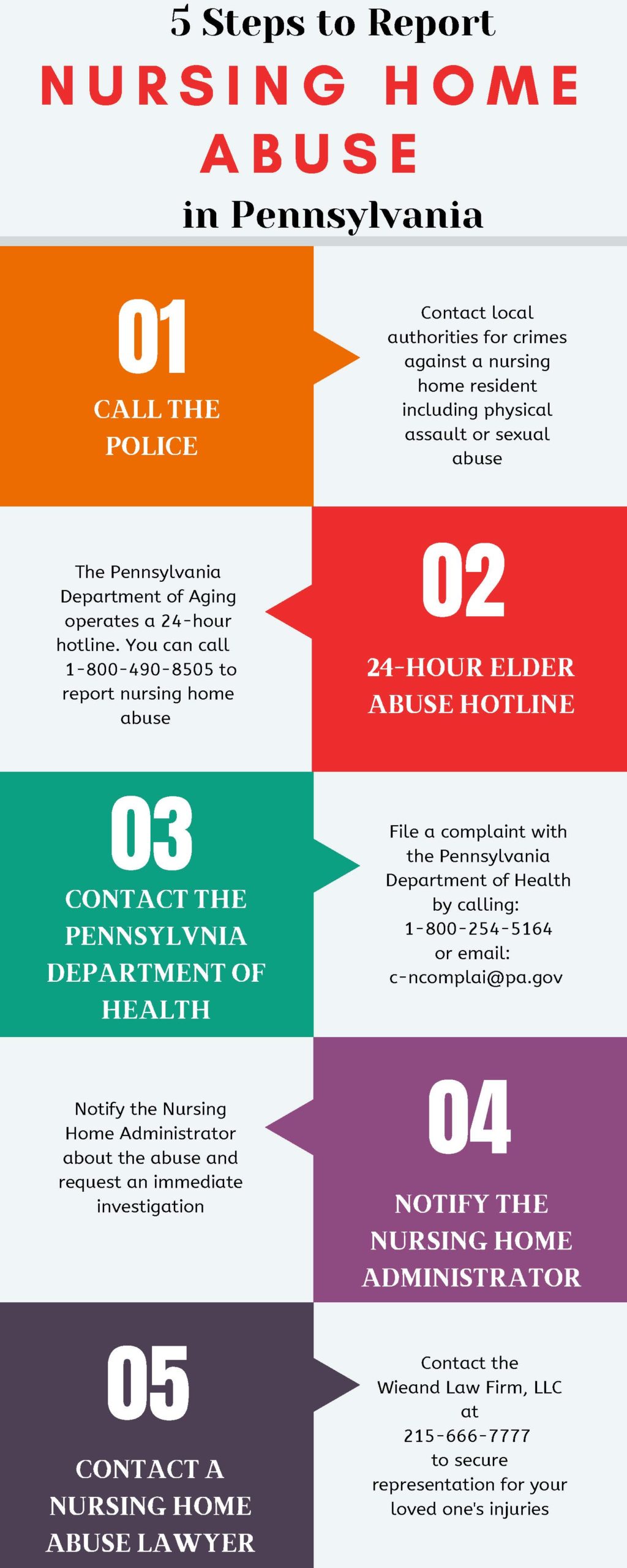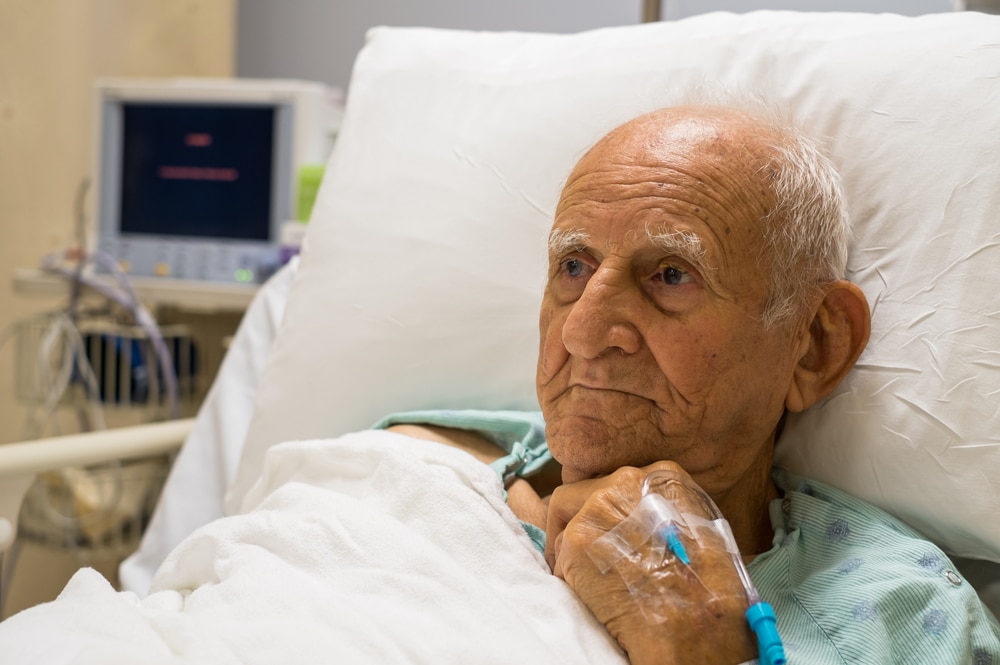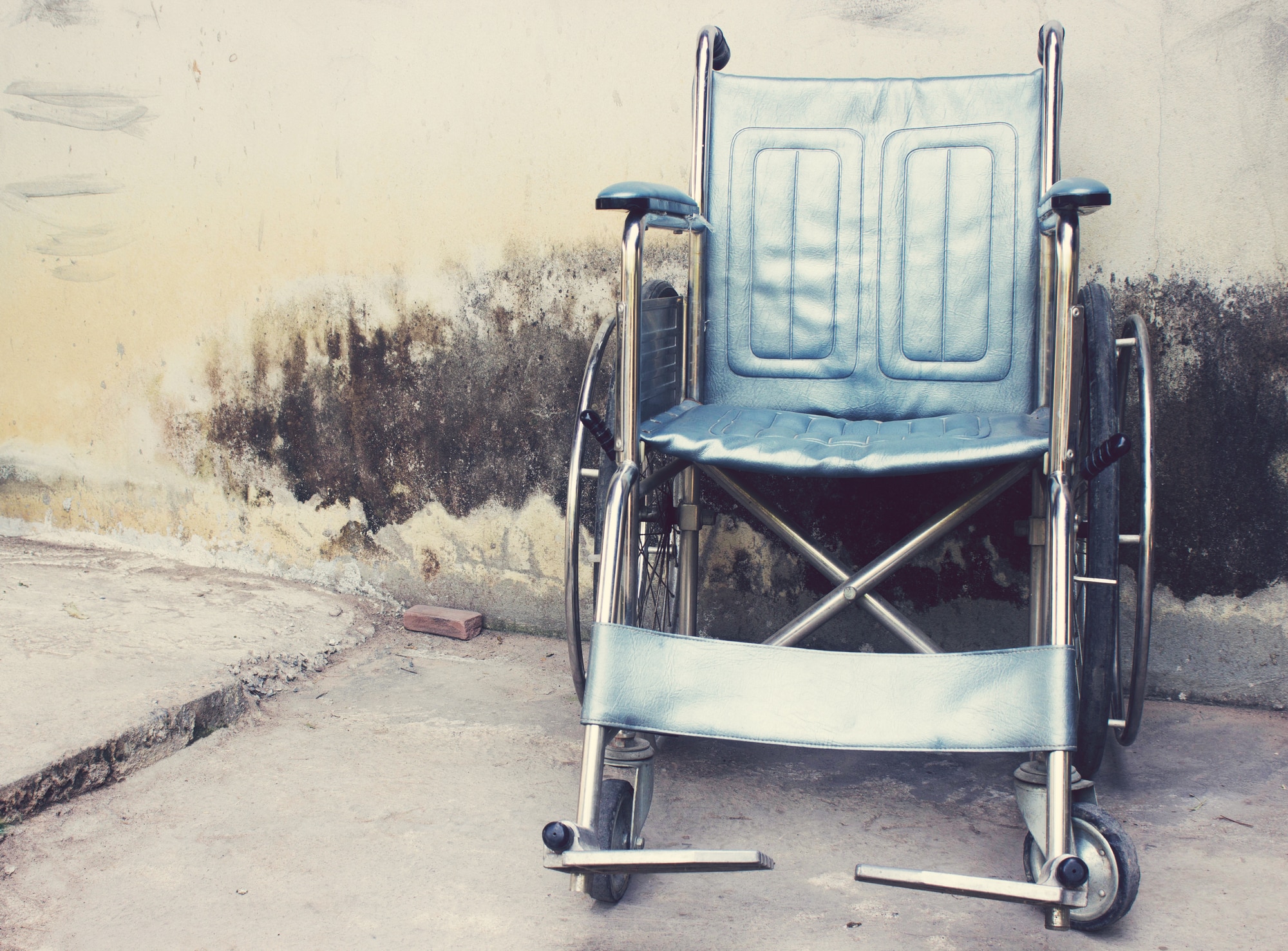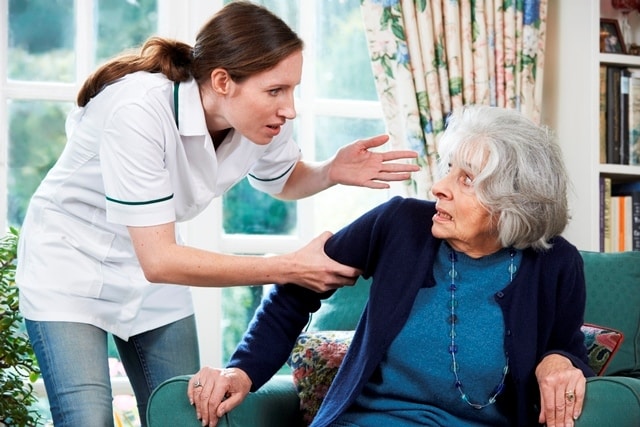 Nursing home residents and their families often ask how to report a nursing home in PA. Consumers who experience poor care, neglect, and abuse frequently struggle to get resolution to their issues. While some issues can be resolved by working directly with facility administration, additional resources may be needed to resolve concerns. PA nursing home abuse lawyers at the Wieand law firm represent victims of nursing home abuse, neglect, and mistreatment. Understanding how to report a nursing home in PA can help you involve the right agencies to resolve concerns and ensure that any reports of neglect, abuse, or improper care are thoroughly investigated.
Nursing home residents and their families often ask how to report a nursing home in PA. Consumers who experience poor care, neglect, and abuse frequently struggle to get resolution to their issues. While some issues can be resolved by working directly with facility administration, additional resources may be needed to resolve concerns. PA nursing home abuse lawyers at the Wieand law firm represent victims of nursing home abuse, neglect, and mistreatment. Understanding how to report a nursing home in PA can help you involve the right agencies to resolve concerns and ensure that any reports of neglect, abuse, or improper care are thoroughly investigated.
According to PA nursing home abuse lawyers, many concerns can be resolved simply by reporting the complaint to the staff and management at a nursing home. Some facilities publish a list of important facility personnel contacts and provide the list to new residents and their families.
Still, many residents and their families don’t know how to properly report a concern. It is important that your concern gets submitted to the right staff member that has the resources and knowledge to address it.
Management staff in a nursing home that you can seek out to address your concern are:
Charge Nurse – this title typically reflects the nurse responsible for direct care of residents during that shift. Seek out the charge nurse as the first-on-deck for a nursing concern. Charge nurses are usually the best point of contact during evening and weekend shifts when higher levels of nursing administration are often unavailable.
Director of Nursing (D.O.N) – This person oversees the entire nursing department. Direct concerns that are not resolved by the charge nurse to the DON.
Social Services Director (S.S.D.) – This person is responsible for ensuring that the social, psychological, and physical needs of residents are being met. A SSD can help coordinate with other departments to resolve questions and concerns.
Nursing Home Administrator (N.H.A) – The NHA is responsible for overall operations management of a nursing home and are involved in assuring resident safety and quality of care. The NHA is typically the top manager of the nursing home and the highest internal level for reporting a concern.
Other titles of personnel to seek out to resolve a complaint include:
PA nursing home abuse lawyers recommend reporting concerns to management staff at the nursing home. But, for a serious concern – such as abuse, neglect, or resident maltreatment – consider simultaneously reporting the concern to an oversight or regulatory agency.
If you submitted your concern verbally, be sure to follow-up in writing so that you can track the responses that you receive and hold the nursing home accountable for how they plan to address the issue.
The Pennsylvania Department of Health is a government agency that regulates nursing homes to ensure they adhere to minimum standards required for licensure. The Department conducts on-site inspections to determine if the nursing home is following state and federal regulations.
If a nursing home is found to be out of compliance with state and federal standards, the agency can take enforcement actions, referred to a remedies, to ensure compliance with program requirements. Examples of enforcement actions include implementation of temporary management, directed in-service training, civil monetary penalties, denial of payment for new admissions and additional state monitoring.
The Pennsylvania Department of Health offers multiple ways to report resident concerns, especially reports of neglect, abuse, and mistreatment:
Phone: 1-800-254-5164
Email: c-ncomplai@pa.gov
Mail: Director of Nursing Care Facilities Director, Pennsylvania Department of Health, Division of Nursing Care Facilities, 625 Forster St, Room 526, Health and Welfare Building, Harrisburg, PA 17120-0701
Fax: 717-772-2163
Or, individuals can file a complaint using the Online Complaint Form
After you report a complaint, an employee at the Department of Health will initiate an investigation. This investigation will involve speaking with the facility. They may request to speak with your loved one as well to get more information. The Department of Health will determine if the facility failed to meet minimum standards of care that are required according to regulations.
If the Department of Health substantiates that the facility failed to meet regulatory requirements, the facility will be required to submit a Plan of Correction that details how they will fix the problem and correct any systemic issues that led to the problem. The Department of Health may ask for proof that the nursing home completed their plan of correction and that the changes and corrections have been completed.
Additional remedies may be taken. For example, the facility may be levied with a fine or a ban on admissions. These remedies are aimed to ensuring that the facility adheres to the quality standards required by regulations.
If you have reached out to PA nursing home abuse lawyers about filing a nursing home neglect lawsuit, be sure to let them know if your concern has been investigated the Department of Health and if the concern was substantiated.
 How to Report a Nursing Home in PA to the Ombudsman
How to Report a Nursing Home in PA to the OmbudsmanFamilies seeking an intermediary to help resolve their nursing homes concerns can report their problem to the ombudsman. An ombudsman is a person who is specially trained to investigate problems regarding a nursing home resident’s dignity and respect.
Ombudsmen empower residents by educating them on their rights and advocating for those who can not speak up for themselves. Many ombudsman are volunteers. They work to resolve complaints and issues on behalf of residents who living in nursing homes, personal care facilities, and assisted living facilities.
The ombudsman can help handle questions or concerns about:
The state ombudsman’s office is operated by the Pennsylvania Department of Aging and can be reached by calling 717-783-8975. They can also be reached via email at LTC-ombudsman@pa.gov.
Reports of suspected elder abuse or neglect can be made the Pennsylvania Department of Aging Elder Abuse Hotline. The elder abuse hotline can be used to report suspected abuse and neglect at a nursing home, assisted living, personal care home, hospital, or for an individual living in the community. A reporter may remain anonymous and have legal protections from retaliation and prosecution for the report.
The PA Elder Abuse hotline’s number is: 1-800-490-8505. This hotline is operated 24 hours a day by trained staff.
Elder abuse is a crime. If you believe that your loved one has been the victim of a crime while residing at a nursing home, it’s appropriate to notify the local authorities. Examples of situations that should be reported to local police include:
If your loved one has suffered from physical or sexual abuse while in a nursing home, contact PA nursing home abuse lawyers to learn about your legal options to pursue a nursing home neglect lawsuit against the nursing facility.
PA nursing home abuse lawyers recommend including the following information when you report your concern about poor care, abuse, or neglect:
Knowing how to report a nursing home in PA and the relevant information to provide can help ensure that your loved one’s situation will be thoroughly investigated.
 Are Nursing Homes Required to Report Abuse and Neglect?
Are Nursing Homes Required to Report Abuse and Neglect?Yes, nursing home staff are required to report abuse and neglect. The Older Adult Protective Services Act (OAPSA) mandates that nursing home employees and administrators report suspected abuse to the local Area Agency on Aging (AAA), Department of Aging, and local law enforcement agencies. Other types of care facilities, such as personal care homes, assisted living facilities, and adult daily living centers must also abide by this Act.
Certain types of abuse have additional reporting requirements to the Pennsylvania Department of Aging. The following types of abuse require reporting to the PDA:
Nursing homes must report all allegations of suspected abuse. If you suspect nursing home abuse, make sure that you notify the Administrator that you are aware of the nursing home’s reporting requirement and that you want confirmation that the abuse has been reported.
Sadly, many incidents of nursing home abuse and neglect are NOT reported. A 2019 report by the Office of Inspector General (OIG) estimated that 1 in 5 Emergency Room visits from a nursing home is the result of abuse. The same report found that nursing homes frequently failed to report incidents of abuse to either CMS or local law enforcement as required.
Because nursing homes frequently underreport abuse, PA nursing home abuse lawyers strongly encourage that family members know how to report a nursing home in PA. Family members should be proactive to speak up and report suspicions of poor care, neglect, or abuse.
If your loved one suffered harm from resident abuse or neglect, reach out to the PA nursing home abuse lawyers at the Wieand Law Firm for competent legal representation. Our attorneys will seek the best possible compensation for their injuries and hold the nursing home liable for the harm that they caused. Working with an attorney and pursuing a civil case is a way to send a strong message to the nursing home that abuse can’t – and won’t – be tolerated.
YES! PA nursing home abuse lawyers highly recommend that you file a report if you suspect abuse. As a family member or advocate of a nursing home resident, you may not have the proper training or expertise to be able to prove that abuse has occurred. However, if you notice signs of abuse and suspect that something wrong is happening, you should file a complaint. This will allow your suspicion to be thoroughly investigated by a trained professional.
Nursing home abuse and neglect can have horrible consequences for residents. Many residents are unable to speak up and advocate for themselves against their perpetrators. As a loved one, the most important thing you can do is to keep an eye out for signs of abuse and neglect and know how to report nursing home abuse in PA when you suspect it.
Common signs of nursing home abuse and neglect include:
If you see one of these signs and suspect abuse, speak up on behalf of your loved one. Report the abuse immediately. Then, contact PA nursing home abuse lawyers for representation and learn about your legal rights in this situation.
 When Should I Contact a Pennsylvania Nursing Home Neglect Lawyer?
When Should I Contact a Pennsylvania Nursing Home Neglect Lawyer?If you believe that your loved one has suffered a serious injury due to nursing home abuse, neglect, mistreatment, or sub-standard care, consider contacting the PA nursing home abuse lawyers at the Wieand Law Firm. The lawyers at our firm can help you fight back against abuse with a nursing home neglect lawsuit.
The nursing home industry frequently allows residents to suffer from neglect to increase their own profit margins. Our firm has seen many cases in which residents suffer when nursing facilities that understaff, insufficiently train their staff, and fail to provide the medical equipment and supplies they need for proper care.
Too many times, this neglect comes to light when a resident suffers an unnecessary injury or medical complication, such as:
If your loved one suffered one of the above problems and you believe it was from poor care or mistreatment, reach out to the Philadelphia personal injury lawyers at the Wieand Law Firm about a nursing home neglect lawsuit.
Call the PA nursing home abuse lawyers at the Wieand Law Firm for a free, no-obligation case review and evaluation. Our attorneys will take the time to speak with you directly to learn about the specifics of your case and help you understand your legal option to pursue civil litigation to seek remedies for your damages.
Because we recognize that effective legal representation should be available to everyone, we offer our services based on a contingency fee agreement. This means that we only earn a fee if we win money for your case. This agreement gives our clients the peace of mind knowing that they have secured quality legal counsel without the stress of affording huge, out of pocket attorney fees.
Our caring and compassionate attorneys are here to provide the best possible representation for you and your loved one in a nursing home neglect lawsuit. Call 215-666-7777 to speak directly with an attorney about your case or use the online form below.
